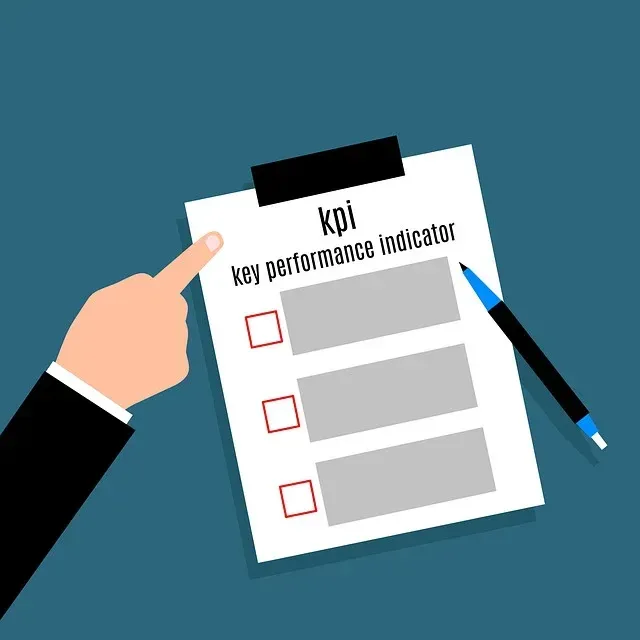Tel: 650-980-4870
Blog

Importance of KPIs for BPOs
The Compass and the Course: Why KPIs are Crucial for BPO Success
In the dynamic world of Business Process Outsourcing (BPO), success hinges on a delicate balance: delivering cost-effective solutions while exceeding client expectations in terms of quality, efficiency, and customer satisfaction. Key Performance Indicators (KPIs) serve as the vital compass, guiding BPOs towards achieving this balance and ensuring a smooth, successful outsourcing experience. This comprehensive explanation delves deep into the importance of KPIs for BPOs, exploring their impact on various aspects of the business.
Setting the Course: Defining KPIs and their Role
KPIs are quantifiable metrics that BPOs utilize to track and measure their performance across various operational areas. These metrics translate qualitative aspects like customer satisfaction and agent efficiency into numerical values, enabling objective assessment and data-driven decision making. By establishing a robust KPI framework, BPOs gain invaluable insights into:
Client Satisfaction: KPIs like Customer Satisfaction (CSAT) scores, Net Promoter Score (NPS), and client retention rates directly reflect the BPO's ability to meet and exceed client expectations. Monitoring these metrics allows BPOs to identify areas for improvement and tailor services to better align with client needs.
Operational Efficiency: KPIs such as Average Handling Time (AHT), First Call Resolution (FCR) rate, and cost-per-contact illuminate the efficiency of BPO processes. By analyzing these metrics, BPOs can identify process bottlenecks and implement strategies to streamline operations, increase productivity, and optimize resource utilization.
Quality of Service: Error rates, rework rates, and adherence to service level agreements (SLAs) are crucial KPIs that measure the quality of services delivered by the BPO. Tracking these metrics allows for continuous monitoring and improvement of quality control processes, ensuring consistent and high-quality service delivery.
Employee Performance: Agent performance is a critical factor in BPO success. KPIs like call volume handled, call quality scores, and adherence to scripts provide insights into agent effectiveness. Additionally, measuring employee engagement through satisfaction surveys and turnover rate helps BPOs foster a positive work environment and retain talent, contributing to long-term performance.
Benefits of a Data-Driven Approach: How KPIs Empower BPOs
The effective use of KPIs offers a multitude of benefits for BPOs, ultimately leading to a sustainable and successful business model. Let's explore some key advantages:
Enhanced Client Relationships: By demonstrating progress towards agreed-upon KPIs through regular reporting and data analysis, BPOs build trust and transparency with clients. This fosters stronger client relationships and allows for collaborative problem-solving to address any emerging issues.
Continuous Improvement: KPIs provide a data-driven foundation for continuous improvement initiatives. By identifying areas where performance falls short of expectations, BPOs can implement targeted process improvements, training programs, and technology investments to optimize performance and achieve operational excellence.
Strategic Decision Making: KPIs empower BPOs to make informed decisions based on factual data rather than intuition or guesswork. Data analysis helps in resource allocation, technology adoption, and identifying new service offerings that align with evolving client needs and market trends.
Cost Optimization: Tracking and analyzing cost-related KPIs allows BPOs to identify areas where they can streamline operations and reduce unnecessary expenses. This translates to cost savings that can be passed on to clients, enhancing their overall outsourcing experience.
Benchmarking and Industry Standards: Utilizing industry-standard KPIs enables BPOs to benchmark their performance against competitors. This comparative analysis helps identify areas where the BPO excels and highlights areas for improvement to maintain a competitive edge.
Choosing the Right KPIs: Aligning Performance with Objectives
Not all KPIs are created equal. The selection of the most relevant KPIs for an individual BPO hinges on several factors, including:
Client-Specific Requirements: Each client will have unique needs and priorities. Identifying and prioritizing KPIs that directly align with these needs ensures clear communication, focused effort, and successful service delivery
Industry Standards: Specific BPO sectors may have established industry-standard KPIs. Integrating these standards into the overall framework ensures adherence to best practices and facilitates benchmarking within the industry.
Strategic Objectives: The BPO's long-term strategic goals should guide the selection of KPIs. This ensures that all performance metrics contribute towards achieving the overall vision and mission of the company.
Challenges and Considerations: Navigating the KPI Landscape
While KPIs offer immense value, implementing and utilizing them effectively comes with its own set of challenges:
Data Overload: It's easy to get bogged down by a plethora of KPIs. BPOs must carefully select a focused set of metrics that provide the most meaningful insights and avoid information overload.
Data Quality: The effectiveness of KPIs hinges on the accuracy and reliability of the underlying data. BPOs must invest in robust data collection and analysis tools to ensure data integrity.
Goal Alignment: All stakeholders, including clients, management, and employees, must be aligned on the chosen KPIs and their significance. This ensures a unified focus on achieving the desired outcomes.
KPIs in Action: Putting Theory into Practice
Let's illustrate the practical application of KPIs with a real-world example. Imagine an BPO specializing in customer service for a telecommunications company. Here's how KPIs can guide their operations:
Client Focus: KPIs like CSAT scores and NPS directly reflect customer satisfaction with the BPO's service. Low scores might prompt the BPO to analyze call recordings and identify areas for improvement in agent communication or troubleshooting skills.
Operational Efficiency: Monitoring AHT and FCR rates can reveal long call handling times or high call transfers. The BPO can then implement targeted training programs to improve agent efficiency and reduce the need for call transfers, ultimately leading to faster resolution times.
Quality Control: By tracking error rates and rework rates, the BPO can identify recurring issues and implement stricter quality control measures. This can involve revising knowledge base articles or conducting refresher training to ensure agents have the most up-to-date information to address customer queries accurately.
Employee Engagement: Low employee engagement can lead to high turnover and compromised service quality. The BPO can utilize employee satisfaction surveys and track turnover rates to identify areas impacting morale. Based on the findings, they can implement employee engagement initiatives, recognition programs, or career development opportunities to cultivate a more positive work environment.
Conclusion: The Roadmap to BPO Success
In the ever-evolving world of BPO, KPIs serve as a roadmap to success. By establishing a robust and relevant KPI framework, BPOs can effectively navigate the complex landscape of client expectations, operational efficiency, and service quality. The data-driven insights gleaned from KPIs empower BPOs to make informed decisions, continuously improve their processes, and ultimately build strong, successful partnerships with their clients. As BPOs embrace the power of KPIs and utilize them strategically, they can chart a course towards sustainable growth, industry leadership, and exceptional client satisfaction.
Menu
Services
© Copyright 2023. Optimal Outcomes. All rights reserved.
